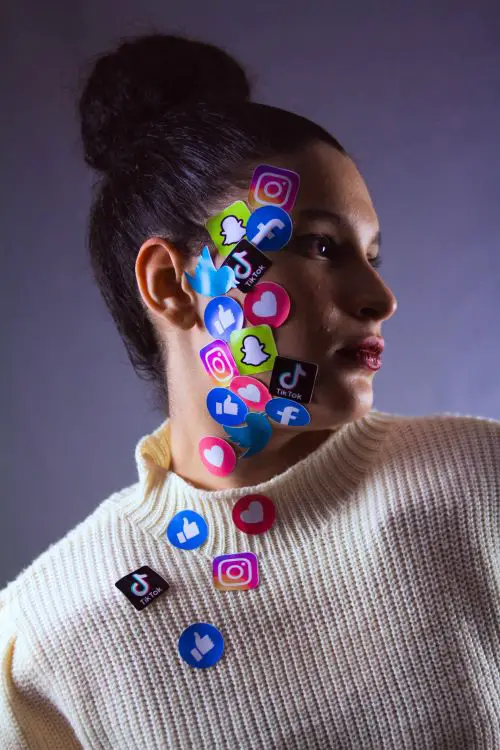Dangers of Social Media Addiction: How to Face the Real World
For many people with autism, social media provides a valuable way to connect with others, especially for those who struggle with in-person social interactions. Online platforms allow for communication without the stress of eye contact, verbal cues, and unspoken social expectations. However, social media addiction can result when not used in moderation and have negative mental health impacts. Finding a healthy balance with social media use is crucial. Here are some tips for those on the autism spectrum.
The Benefits of Social Media

Additionally, social media enables connecting with others who share your unique interests, no matter where they live geographically. It can help combat the isolation and loneliness that many with autism experience. Shared interests provide an instant sense of belonging and community. Even if someone struggles to make friends in-person, they can find acceptance online.
Social media also gives a place to showcase talents and skills without the judgements often faced in public. For example, an autistic teen can build a following on YouTube for their piano playing or video editing skills. The affirmation gained from “likes” and positive comments provides a much-needed self-esteem boost for many.
Social media delivers social interaction in a formatted way that fits better with an autistic brain. It removes much of the uncertainty and overstimulation of in-person interactions. But while appreciating these benefits, it’s also crucial to remain mindful of overuse and the dangers of social media addiction.
7 Signs That You Are Addicted to Social Media
There are a number of warning signs that indicate social media addictions from excessive dependence on them:
- Checking apps compulsively throughout the day
- Anxiety or irritability if unable to access accounts
- Loss of interest in activities once enjoyed, replaced by social media immersion
- Isolation from family and friends in order to spend more time online
- Lack of self-control around usage, despite negative consequences
- Using social media to avoid problems or unwanted emotions
- Significant sleep loss due to late night social media use
These patterns of behavior reflect those seen with other addictions. The brain’s reward centers become overly dependent on the dopamine released by social media engagement. Just as with substance addictions, tolerance builds so even more social media interaction is needed. Identifying these unhealthy habits early to avoid social media addiction is key to regaining control.
Creating Social Media-Free Blocks of Time

For example, if someone currently spends 6 hours a day on social media, begin with scheduling two 30-minute breaks per day.
Gradually build up these social media-free blocks. The goal should be 2-3 hours daily spent engaging in activities fully offline. Schedule these time slots when you are most prone to overindulge online, like first thing in the morning or late at night. During these times, disable all social media notifications and leave devices in another room to avoid temptation.
By creating designated times where social media is declared off limits, it allows individuals time to think about and do other activities they may enjoy as well. If possible, try and avoid going through social media first thing in the morning or at the end of the day, so that you are able to remain focused about activities that focus on you.
Filling Free Time with Healthy Alternatives
The key to making blocked-off time successful is filling it intentionally with activities that provide engagement and meaning.
Consider exploring some of these social media alternatives:
- Engaging in creative hobbies: arts, crafts, music, writing
- Learning new skills through online courses or YouTube tutorials
- Exercising or participating in sports
- Reading books that interest you
- Playing puzzles or brain games
- Journaling or writing in a diary
- Engaging in self-care activities like taking a bath, meditating, etc.
- Playing board games or cards with family or housemates
- Cooking or baking something comforting
- Calling or video-chatting with real friends or relatives
- Getting involved with local groups related to your interests
The goal is to redirect time toward activities that provide genuine happiness, achievement, and connection. Immerse yourself fully in these pursuits rather than allowing your mind to drift back to social media.
Using Social Media More Mindfully

– Determine specific reasons you want to use social media, like connecting with close friends or showcasing art. Use it intentionally just for those purposes.
– Prune your social feeds to focus only on uplifting, positive content. Unfollow or mute accounts that cause stress.
– Limit lengthy back-and-forth conversations that suck up excessive time.
– Take regular breaks by closing apps for a period of time.
– Disengage from content that overwhelms you emotionally rather than getting pulled in.
– Check in with yourself about how social media is impacting your mood.
– Prioritize offline plans over online interactions.
– Foster real life connections by turning online conversations into in-person meetups.
By using social media more consciously, it can be an enjoyable tool that enhances life rather than controls it. Remain aware of a re-emerging social media addiction of when usage tips into mindless overindulgence, which signals it’s time for a usage reset.
Seeking Outside Support When Needed
For some on the autism spectrum, outside assistance may be needed to break entrenched social media addiction. Consider opening up to a mental health professional about your struggles. Joining a support group provides community and accountability.
Apps that limit screen time on devices can also help regain control. Premium versions allow blocking certain apps or setting overall time limits that lock apps when reached. Using external motivation like this reduces reliance on self-control alone.
Moderation and Balance Is Key
You always hear stories about adults wasting their lives on social media and becoming miserable because of it but they can’t stop because their social media addiction. You can especially see this a lot with kids too; some parents don’t know how to entertain their kids without devices so they just give them an iPad to watch videos and play games, but that’s how a lifelong social media addiction starts.
Tech companies design their products to be addictive so we really shouldn’t be surprised this is happening. There are plenty of documentaries and news articles about the dangers of social media but we keep letting young children use and get addicted to it.
Some countries are handing this better than others. China, the country that created TikTok, actually banned kids from using social media. Additionally, the CEO of TikTok doesn’t even allow his own children to use the app, so that’s a good sign we shouldn’t let our children use it either. We seriously need to learn how to handle social media better, as it’s clearly hurting us adults and children.
We’re still struggling to figure that out and we have no idea what the long term consequences of letting children use social media will be but it’s safe to say that it won’t be good and will result in social media addiction.
Social media has its benefits but we need to learn to moderate it so it won’t go too far. However, I don’t think banning apps is a good idea because it’s a slippery slope before the government starts trying to control information like an authoritarian regime but we do need to create a balance before things get out of control and it starts damaging civilization.
In the end, the goal should be moderate social media use and avoid the dangers of social media addiction by making sure it complements (not controls) an engaged, fulfilling offline life. Take time to identify activities and relationships outside of social media that provide joy and meaning. Be vigilant for addictive usage patterns and be willing to course correct as needed.
With intention and self-awareness, those on the spectrum can still benefit from social media’s connectivity, while minimizing its risks. The ideal is using it as a tool to build interests and skills that enhance both virtual and real world happiness.
Autism in Adults: Living, Learning, and Overcoming Challenges for a Fulfilled Life
Autism in adults requires additional support and coping skills to achieve independence in today’s world. Learn more about ways adults can live fulfilled lives and the challenges they face.
- 14 Practical Ways for Staying Motivated to Unlock Full Potential
- Autism and Independence: 7 Skills That Empower Individuals to Thrive
- Autism Volunteer Opportunities: 5 Ways Helping Others Fosters Acceptance
- 8 Heartfelt Ways Autism Emotional Support Animals Transform Lives
- Autism in the Future: Optimism for Improved Perception and Embracement
- Autism and AI: 7 Discoveries About the Surprise Pairing and Profound Impact
- Are You An Adult With Autism? Here Are 6 Signs
- Autism After High School: Is College the Next Step?
- Autism vs Asperger’s Syndrome: What You Need to Know
- Autism Disclosure: Is Revealing Your Disorder Helpful
or Hurtful? - Work and Autism: What Employers Should Know About Hiring People Like Me
- Drivers with Autism Can Achieve Success Behind the Wheel